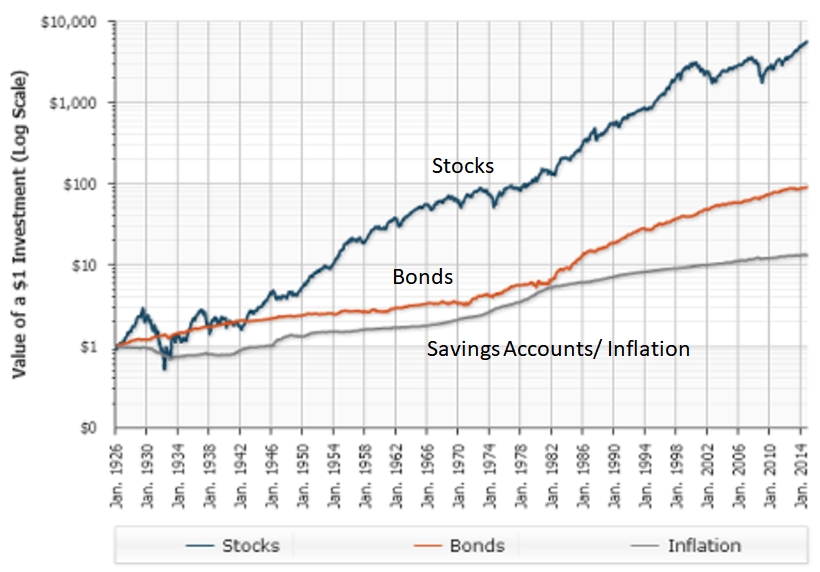Most people don't live past 100 years old so silly charts going back to 1926 means nothing. Why don't you look at the last 22 years? Well managed fixed income portfolios of high yield and investment grade bonds have outperformed equities since the year 2000. This is a fact of life. Comparing loser index bond funds some that are about to wipe out all returns since inception, with equity funds is hardly a comparison. Bond funds are not bonds. Do you still not understand that? Passive funds are a bubble. Don't take my word for it, listen to Michael Burry:
"Difference between now and 2000 is the passive investing bubble that inflated steadily over the last decade. All theaters are overcrowded and the only way anyone can get out is by trampling each other. And still the door is only so big,"
https://nypost.com/2022/10/03/michael-burry-flags-passive-investing-bubble-as-market-risk/
This super-bubble will take at least 3 years to bottom just like the one in 2000. Rate hikes popped the the dot com bubble and rate hikes have only started to pop this one. I have the same game plan as I did in 2000 -2003, just keep laddering short duration fixed income at higher and higher yields with 100% return of capital. Only this time I will have passive bond funds trampling over each other dumping bonds at significant losses and much higher yields come this tax loss selling season.


